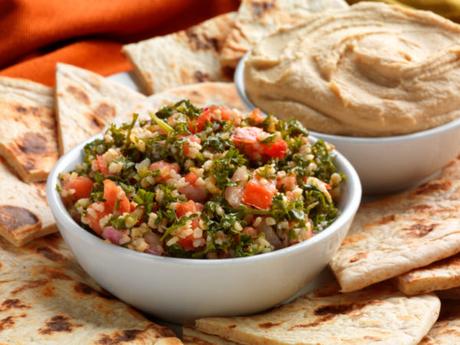
As we have entered July, many of us have been fasting for the past many weeks. There are numerous potential health benefits of fasting, including weight loss, lowered cholesterol and lower blood pressure, but let's face it, people are looking forward to getting back to their normal eating schedules. Are the residents of Dubai choosing healthy options, though? How are the foods that we most commonly enjoy in the Emirates affecting people here? Here, UAE Medical Insurance attempts to answer these questions by examining available information about health and food in Dubai.
Dubai's health situation
As with many other countries in the developed world, the UAE, and thereby Dubai, has been seeing increased incidence of so-called 'lifestyle diseases'. In fact, some of the statistics related to the health of Dubai are quite striking. For instance, 66% of men and 60% of women in the Emirate are considered to be obese or overweight, and these kinds of figures can be seen across all age groups. This can be seen easily in children in the UAE in general, where a larger portion of children are obese than is seen in the United States, and, furthermore, UAE children have been found to have cholesterol levels consistent with those commonly seen in 60 year old men. Here are some more points about the current level of health in the UAE:
- 1 out of every 5 people in the UAE is diabetic.
- The average age of heart attack patients at Dubai's Rashid Hospital is 20 years younger than the worldwide average.
- More than 40 percent of adults in the UAE between 35 and 70 years of age suffer from hypertension (high blood pressure).
- The most common health complaint in the UAE is cardiovascular disease, both in expats and locals alike.
- Non-communicable diseases are now responsible for over 60 percent of all mortalities in GCC countries, which includes the UAE.
As you can tell from these facts and figures, diseases of affluence have unsurprisingly become a major issue in Dubai, as well as the rest of the UAE. To counter these trends, it would be prudent to focus on a few main points: weight gain, heart disease and diabetes. Here are some of the popular local dishes you can find around Dubai, and some you might want to avoid over indulging in.
Food in Dubai
What are the dishes that Dubai is known for?
On the relatively healthy side of things, there are many great vegetarian dishes enjoyed widely in Dubai. These include staples like Falafel, Hummus, Kousa Mahshi and Tabbouleh. These foods mostly contain heart healthy fats, dietary fiber and a smattering of vitamins that will provide good fuel for your body while not causing you to gain weight when eaten in moderation.
One of the main ingredients in the foods we eat leading to weight gain, and, thereby, other health problems, is sugar. If not burned immediately for energy, this sweet substance will be stored as fat in our bodies. This is why some of our favorite delectable Dubai dishes should be eaten very sparingly. These include desserts like Luqaimat, Khanfaroosh, Knafeh, Esh Asarya and Mehalabiya, or breakfast dishes like Khabees. Even something seemingly healthy and natural like Dates can have a serious amount of sugar hidden within.
Moving from simple to complex carbohydrates, the array of delicious breads to be found in Dubai will tantalize even the most veteran of savory food lovers. While often good sources of fiber, the carbs in bread often spike insulin, which promotes converting energy into glucose within your body, which will then be stored as fat. This includes the bread and wheat found in dishes like Shawarma, Al Harees, Manousheh, Fatteh, Kellaj, Lahem Bl Ajin and Tabbon Bread.
Finally, we have meat focused dishes like Ghuzi, Al Machbous, Mixed Grill, Chelo Kebab, Stuffed Camel and more. While lean protein is generally good for you (and great for those who work out regularly), it's still important to look at what else is on the plate. Watch out for sugary sauces and starchy side dishes that often go overlooked when placing your order.
Keeping healthy
Clearly, the flavors of Dubai are both rich and varied, and now you hopefully have an idea of which dishes you can enjoy on special occasions, and which you can regularly to maintain a healthy diet. In addition, it's not always about what you are eating as it is how much of it you eat. Keeping track of your daily calories and managing your portions will go a long way to ensuring that your waistband isn't expanding in perpetuity.
Coincidentally, the end of Ramadan this year also signals the beginning of the Dubai Health Authorities healthcare reform that now requires every single individual in the Emirate to be covered by a private health insurance plan, and for good reason. While preventive care and healthy living should be the focus for all of us in the UAE, there inevitably comes a time in the life of some when diseases like those mentioned previously in this article will catch up. This is when it will be imperative to have a high quality healthcare plan that can address the potential costs of chronic diseases like diabetes and heart disease.
Those who have yet to purchase private medical insurance for themselves or their families following the June 30 th deadline should fear not, there's still time. The DHA has stated that it will be giving a 6 month grace period during which no fines will be levied against the uninsured. That means people can still use the services of insurance brokers like UAE Medical Insurance to compare health insurance plans from major insurers in Dubai and receive free price quotations. Whether you will be eating healthy now or not, it's certainly in your best interest to prepare for any future health problems that could develop.
